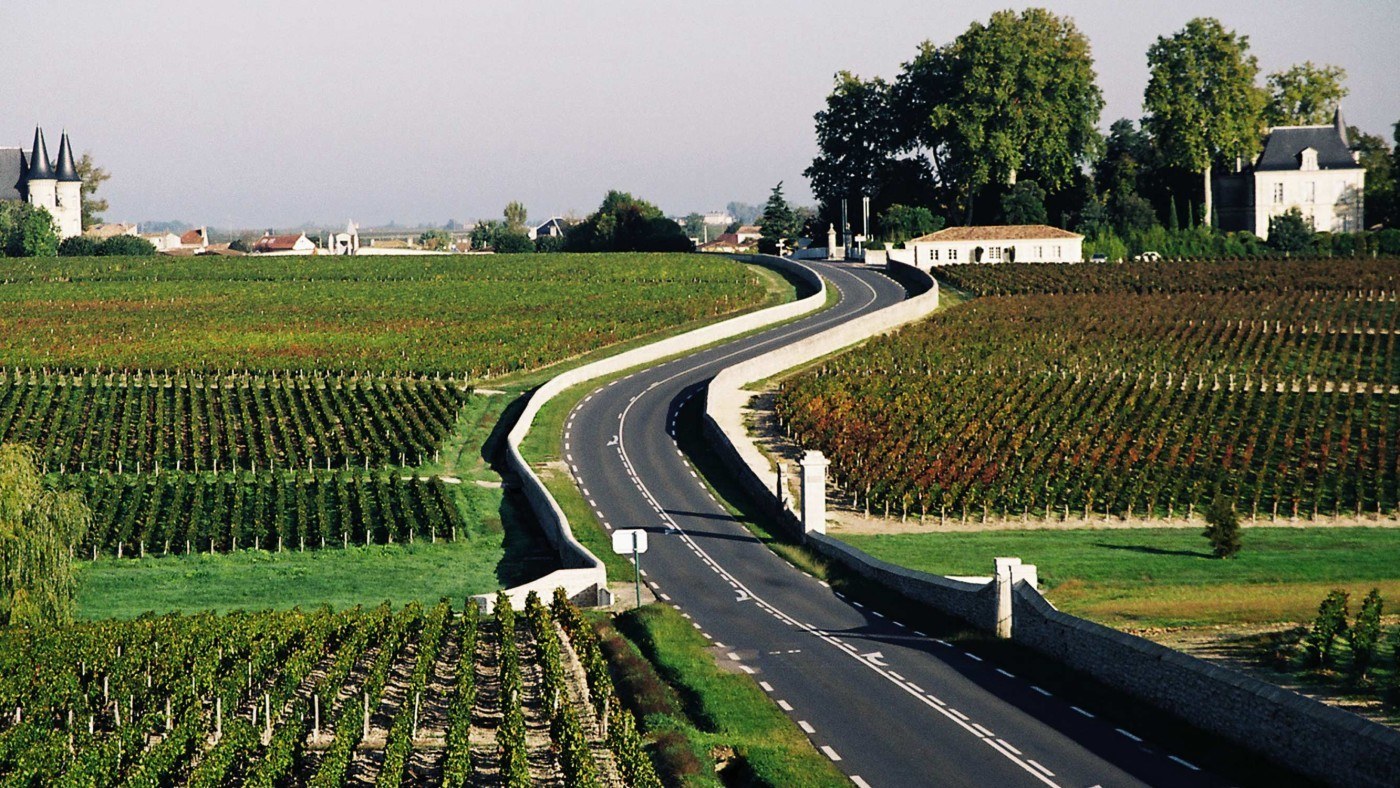From the centre of Bordeaux there are two ways to get to the north of the Médoc peninsula. The quickest way is via the D1, a slightly boring road, which will whisk you up to the fringes of Pauillac in no time. The second, which at first requires a bit of careful navigation around some pretty bleak industrial suburbs takes far longer and for the first stretch it is nothing more than flat arable land and sheep. But it is the latter which I take every time. The marshland soon gives way to vineyards and when you pass the familiar sign of Château La Lagune you know that Margaux awaits and the D2 transforms itself into the most magical road on the wine route.
I have been driving up this road professionally for more than ten years and every time I see the flags fluttering on top of Château Palmer my spirits soar. Not only is Bordeaux the world’s largest fine wine region, whose Cabernet Sauvignon blends have been emulated across the globe, it is also magical, a fairy tale patchwork of grand Châteaux, manicured lawns, medieval cellars, sweeping vistas overseen by vignerons who can out dress the British Royal family.
But something strange has happened to the reputation of this region in recent years. It has become fashionable to decry the wines of Bordeaux. As my former colleague Jay McInerney at The Wall Street Journal wrote: “In spite of…the fact that Bordeaux has produced the world’s most famous wines for hundreds of years, slagging it has become a new form of snobbery.” It’s not just hipsters or sommeliers either, a decade of price rises has provoked a furious backlash as collectors, merchants and journalists all fulminate at everything from the way it is sold, its hefty price tag, the overly ripe and alcoholic styles of years such as 2009 to the lavish Châteaux redevelopment its owners can now afford.
The very best wines in Bordeaux are undoubtedly expensive, some ludicrously so and like all markets prices have risen and fallen. Take the 2010 Château Lafite Rothschild as an example, this was released at a price of £12,000 for a case and today it is trading at £5,450 a case.
But speculation has always been part of the Bordeaux market. George Saintsbury complained about the rise and fall of the cost of the 1893 vintage in ‘Notes on a Cellar Book’ published in 1920.
Grumbling about high prices is silly. It’s like disapproving of the cost of a Michelangelo. The best in any field always comes with a hefty price tag and while we’re at it let’s look at the top wines from Napa, Australia, Italy and Burgundy. The latter have now outstripped those of Bordeaux and yet its vignerons never seem to receive the opprobrium one reserves for those who ply their trade on the banks of the Gironde.
Oeonophiles often say that the wine journey begins with an appreciation of fruity, ripe, obvious styles of wine and ends with a palate craving the nuance and complexities of Burgundy. And yet in the many tasting and dinners I have hosted in cities across the world from London, to New York, Hong Kong and Singapore it is always the red Bordeaux I serve which receives the most lavish praise. Why? Well, they posses a unique combination of finesse and power, have an ability to improve with age evolving from youthful flavours of blackcurrant and spice to something more ethereal with mature notes of cedar, tobacco and pencil shavings. They are also very consistent.
But aside from their taste Bordeaux’s magic lies in its variation and value. Yes, value. Leave aside the top 30 Châteaux and there are some wonderful Cabernet Sauvignon, Merlot blends to be found at a price point between £10 and £20. But it’s not at all about red wine, we haven’t even touched on the region’s mouth watering crisp, zippy Sauvignon Blancs, the complex, dry, creamy white wines of the Graves. The world’s best sweet wine in the luscious, golden wines found in Sauternes and Barsac. After a week of tasting I like nothing more than to drive out to the Arcachon Bay for half a dozen oysters and a carafe of locally made rosé. Heavenly. In Bordeaux there is simply something for everyone.


